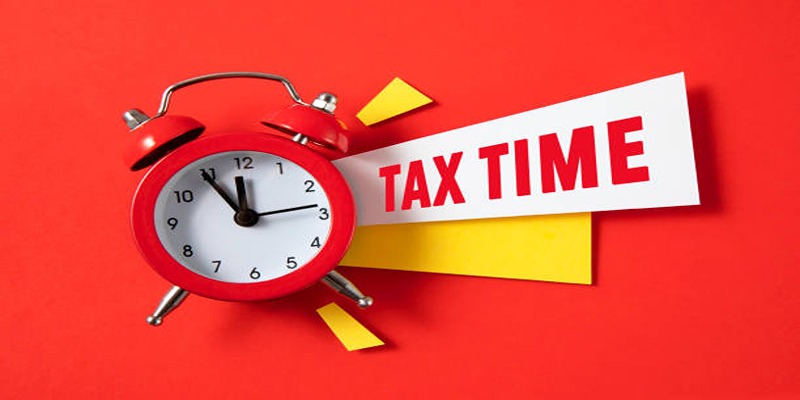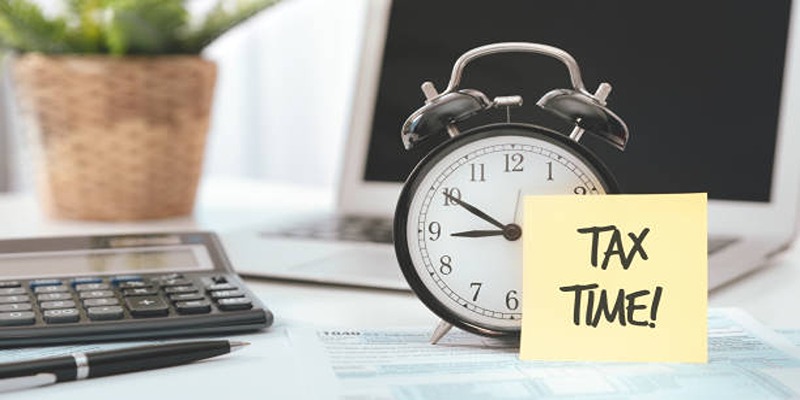When Is Tax Season? A Comprehensive Overview of Filing Dates
Oct 17, 2024 By Susan Kelly
Advertisement
Tax season is a critical period each year when individuals and businesses prepare and file their income tax returns with the government. Understanding the filing dates is essential to ensure compliance and avoid penalties. In the United States, tax season typically starts in January and runs through mid-April, with April 15th being the deadline for most tax returns. However, these dates can vary slightly each year due to weekends or holidays. Knowing when tax season occurs allows taxpayers to plan ahead, gather necessary documentation, and consider any deductions or credits for which they may be eligible. While it may seem daunting, timely preparation and filing can alleviate stress, ensure legal compliance, and potentially lead to tax savings. This guide provides a comprehensive overview of the essential filing dates taxpayers need to remember.
What is Tax Season?

Tax season refers to the designated period each year when individuals and businesses must prepare and file their income tax returns with the relevant governmental tax authority, such as the Internal Revenue Service (IRS) in the United States. During this time, taxpayers are required to report their earnings, calculate their taxes owed, and settle any tax liabilities. It is a crucial time for both taxpayers and the government, as it determines the collection of revenue that funds public services and infrastructures.
Preparation during tax season often involves gathering financial records, understanding applicable tax laws, and leveraging deductions and credits to optimize tax outcomes. Proper knowledge and awareness of tax season can streamline the filing process and ensure financial compliance.
Start Date for Tax Season
Tax season officially begins in January, marking the start of the period when taxpayers can start filing their returns. The exact date varies each year, often commencing around the third or fourth week of the month. During this time, the IRS begins accepting both electronic and paper tax returns. It is crucial for taxpayers to be aware of this start date to ensure prompt filing, particularly for those eager to receive their tax refunds.
Initiating the filing process early also allows individuals and businesses to address any issues or discrepancies that may arise in their tax documents, ultimately smoothing the path toward successful and timely compliance.
Importance of Knowing the Start Date for Filing Preparations
Understanding the start date for tax season is vital for efficient and stress-free tax filing preparations. Knowing when tax season begins allows taxpayers to organize their financial documents early, minimizing last-minute stress and reducing the likelihood of errors that can lead to penalties or audits. Early preparation also provides ample time to consult with tax professionals, ensuring that they fully understand any tax law changes and can take advantage of available deductions and credits.
Furthermore, being aware of the start date permits taxpayers to file their returns as early as possible, which is particularly beneficial for those expecting a tax refund. Timely filing can result in faster refund processing and completion of the annual tax obligation well before the deadline rush.
How Early You Can File
While tax season officially begins in January, taxpayers can actually prepare their tax returns even before the IRS starts accepting submissions. Many tax software providers allow users to complete their returns as early as the first week of January, with submissions held until the IRS begins processing. For those opting to file paper returns, it is advisable to have everything ready to mail once the start date arrives. Being prepared to file early offers several advantages, including a jump start on the refund process and more time to correct any potential errors.
Moreover, early filing can help avoid potential issues such as identity theft, as it reduces the window of opportunity for thieves to submit fraudulent returns using taxpayer information. Overall, while waiting for the official start date may be necessary, gearing up for early filing can significantly streamline the process and contribute to a more seamless tax season experience.
Key Filing Dates and Deadlines
For most taxpayers, the primary deadline to file individual tax returns is April 15th. If this date lands on a weekend or a recognized holiday, the deadline usually extends to the next business day. Those who cannot meet the April deadline can request a six-month extension, shifting the final deadline to October 15th. However, it's crucial to understand that while you can extend the filing date, any taxes owed must still be paid by April 15th.
Other critical deadlines include March 15th for partnerships and S-corporations, as these entities must file Form 1065 and Form 1120S, respectively, by this date. If these entities require more time, they can apply for a six-month extension. Deadlines for estimated tax payments also occur quarterly, typically falling on April 15th, June 15th, September 15th, and January 15th of the following year for self-employed individuals and others who do not have taxes withheld from their income.
Steps to Prepare for Tax Season

- Gather Financial Documents: Start by collecting all necessary documents, including W-2s, 1099s, bank statements, and any records of deductible expenses. Having these items organized and accessible is the first step toward efficient tax filing.
- Understand Applicable Tax Laws: Familiarize yourself with any tax law changes that may affect your return. This includes updates to tax brackets, standard deductions, and credits for which you may qualify. Utilize resources from the IRS website or consult a tax professional for guidance.
- Choose a Filing Method: Decide whether to file taxes on your own using tax software or to hire a professional tax preparer. Consider your confidence level in handling tax matters and the complexity of your return when making this decision.
- Consider Deductions and Credits: Review potential deductions and credits that may apply to your situation, such as education credits, home office deductions, or energy-saving improvements. Identifying these can lead to significant tax savings.
- Plan for Payments or Refunds: Calculate whether you owe taxes or are expecting a refund. If you owe money, plan your finances accordingly to ensure you can make the payment by the deadline. If you're due a refund, decide how you will handle the funds, such as direct deposit or using the refund for savings or investments.
- File Electronically for Accuracy and Speed: Consider e-filing, as it can reduce errors with its built-in checks and facilitate faster processing of any refunds through direct deposit.
- Remain Vigilant Against Scams: Be aware of tax-related scams and fraudulent communications. Verify any contact claiming to be from the IRS and ensure the website or service provider is legitimate, especially when inputting personal information.
By carefully following these steps, you can alleviate stress and enhance your tax filing experience, ensuring compliance and potentially optimizing your tax outcome.
Conclusion
Navigating tax season can be a daunting task for many individuals, but with thorough preparation and a clear understanding of important dates and applicable tax laws, the process can become more manageable. By organizing financial documents early, choosing the right filing method, and staying informed about potential deductions and credits, taxpayers can reduce stress and avoid common pitfalls. Filing electronically and being vigilant against scams further enhances the taxpayer experience, ensuring accuracy and security. Ultimately, well-planned and early tax preparations not only fulfill legal obligations but could also reveal opportunities for financial savings and peace of mind.








